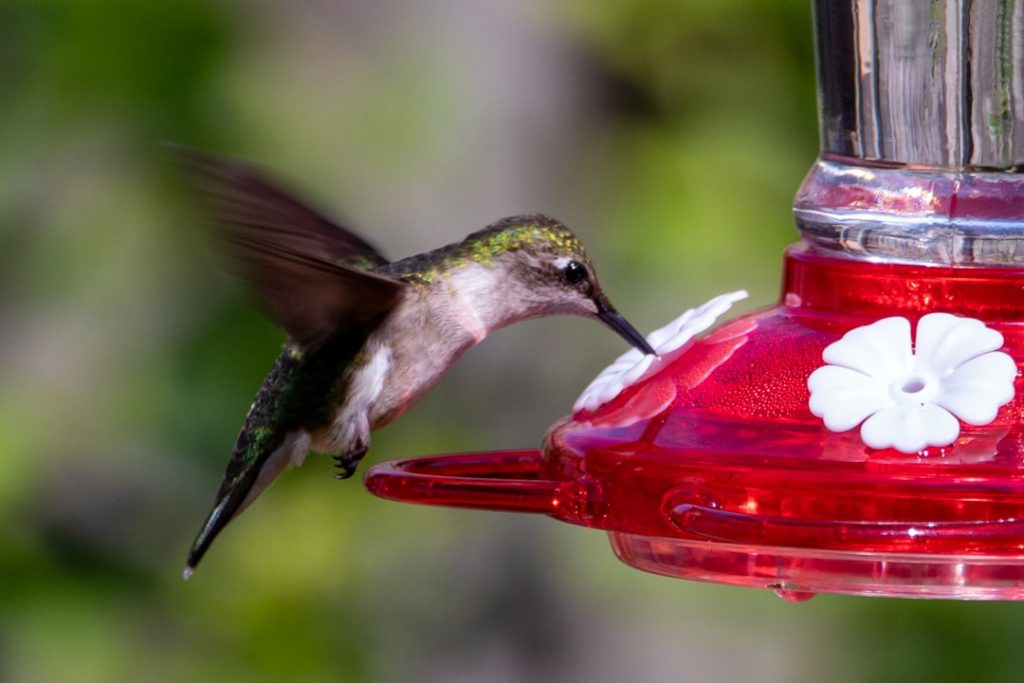Backyard chicken keeping offers numerous benefits. Chickens provide a sustainable source of fresh eggs and contribute to natural pest control and garden fertilization. This practice can reduce one’s carbon footprint by promoting local food production and waste reduction.
Chickens are generally low-maintenance animals that can serve as educational tools for children, teaching responsibility and fostering a connection to nature. Research has shown that interacting with chickens can have positive effects on mental health, potentially reducing stress and anxiety levels. Many individuals find chicken care to be a calming activity.
Chickens can also serve as companions, offering a unique connection to the natural world. In addition to these personal benefits, backyard chickens contribute to local food systems and promote sustainable living practices. They can help reduce reliance on industrial agriculture and support biodiversity in urban and suburban environments.
However, it’s important to note that chicken keeping requires proper care, knowledge of local regulations, and consideration for neighbors to ensure a positive experience for all involved.
Table of Contents
- 1 Choosing the Right Breed of Chicken for Your Space and Needs
- 2 Building a Coop and Run for Your Chickens
- 3 Feeding and Caring for Your Chickens
- 4 Understanding Local Regulations and Laws Regarding Keeping Chickens
- 5 Dealing with Common Challenges and Health Issues
- 6 Enjoying the Rewards of Fresh Eggs and Fertilizer from Your Chickens
- 7 FAQs
- 7.1 What are the benefits of keeping chickens in your backyard?
- 7.2 What do chickens need to thrive in a backyard environment?
- 7.3 Are there any local regulations or restrictions on keeping chickens in a backyard?
- 7.4 What are some common predators that may threaten backyard chickens?
- 7.5 How much time and effort is required to care for backyard chickens?
- 7.6 What are some common health issues that backyard chickens may face?
- 7.7 Can backyard chickens be kept in a sustainable and environmentally friendly way?
Key Takeaways
- Keeping chickens in your backyard can provide fresh eggs, natural pest control, and fertilizer for your garden.
- When choosing the right breed of chicken, consider the space you have available, the climate in your area, and your specific needs for egg production or meat.
- Building a coop and run for your chickens requires careful planning to ensure they have enough space, protection from predators, and access to food and water.
- Feeding and caring for your chickens involves providing a balanced diet, regular health check-ups, and proper hygiene to prevent diseases.
- Understanding local regulations and laws regarding keeping chickens is important to avoid any legal issues and ensure the well-being of your flock.
Choosing the Right Breed of Chicken for Your Space and Needs
Climate and Space Considerations
First, you’ll need to consider the size of your space and the climate in which you live. Some breeds of chickens are better suited to cold climates, while others thrive in warmer environments.
Purpose of Keeping Chickens
Additionally, you’ll need to consider the purpose of keeping chickens. If you’re primarily interested in egg production, you’ll want to choose a breed known for its high egg-laying capabilities. On the other hand, if you’re interested in raising chickens for meat, you’ll want to choose a breed that grows quickly and has a good meat-to-bone ratio.
Popular Breeds for Backyard Chicken Keeping
Some popular breeds for backyard chicken keeping include the Rhode Island Red, the Plymouth Rock, and the Australorp. These breeds are known for their friendly dispositions, high egg production, and adaptability to a variety of climates.
Ensuring a Successful Experience
By carefully selecting the right breed of chicken for your space and needs, you can ensure a successful and enjoyable backyard chicken-keeping experience. It’s important to do thorough research before choosing a breed of chicken to ensure that it will thrive in your specific environment and meet your needs for egg production or meat.
Building a Coop and Run for Your Chickens

Building a coop and run for your chickens is an essential step in creating a safe and comfortable environment for your feathered friends. The coop should provide protection from predators and the elements while also allowing for proper ventilation and natural light. When designing a coop, it’s important to consider the size of your flock and provide at least 2-3 square feet of space per chicken inside the coop.
Additionally, the coop should include roosting bars for the chickens to perch on at night, as well as nesting boxes for egg-laying. In addition to the coop, you’ll also need to build a secure run for your chickens to have access to fresh air and outdoor space. The run should be enclosed with wire mesh to prevent predators from entering and should provide at least 10 square feet of space per chicken.
It’s important to provide enrichment in the run, such as perches, dust baths, and shade structures, to keep the chickens happy and healthy. By building a well-designed coop and run for your chickens, you can ensure that they have a safe and comfortable living environment while also providing them with opportunities for natural behaviors such as scratching and foraging.
Feeding and Caring for Your Chickens
Feeding and caring for your chickens is an important aspect of backyard chicken keeping. Chickens require a balanced diet that includes a combination of commercial feed, kitchen scraps, and access to fresh water. It’s important to provide a high-quality layer feed that contains essential nutrients such as protein, calcium, and vitamins to support egg production.
Additionally, chickens enjoy kitchen scraps such as fruit and vegetable peels, bread, and cooked grains as treats, but it’s important to avoid feeding them foods that are toxic to chickens such as avocado or chocolate. In addition to feeding, caring for your chickens also involves regular health checks and maintenance. This includes monitoring their overall health, checking for signs of illness or injury, and providing regular access to dust baths for natural grooming.
It’s also important to keep the coop clean by regularly removing soiled bedding and replacing it with fresh bedding to prevent the buildup of bacteria and parasites. By providing proper nutrition and care for your chickens, you can ensure that they remain healthy and happy while also maximizing their egg production.
Understanding Local Regulations and Laws Regarding Keeping Chickens
Before embarking on the journey of keeping chickens in your backyard, it’s important to understand the local regulations and laws regarding urban chicken keeping. Many cities and towns have specific ordinances that dictate the number of chickens allowed per property, as well as regulations regarding coop size, distance from property lines, and waste management. It’s important to research the local zoning laws and regulations in your area to ensure that you are in compliance with any restrictions or requirements.
In addition to zoning laws, it’s also important to consider any homeowner association rules or covenants that may impact your ability to keep chickens. Some neighborhoods have specific restrictions on livestock or poultry keeping that may prohibit or limit backyard chicken keeping. By understanding the local regulations and laws regarding keeping chickens, you can ensure that you are in compliance with any legal requirements and avoid potential fines or penalties.
Dealing with Common Challenges and Health Issues

Common Challenges and Health Issues
While keeping chickens can be a rewarding experience, it’s essential to be prepared for common challenges and health issues that may arise. Common challenges include predator attacks, such as raccoons or hawks, which can be mitigated by ensuring that the coop and run are secure and predator-proof. Additionally, chickens are susceptible to various health issues such as parasites, respiratory infections, and egg-laying problems.
Monitoring and Preventing Health Issues
It’s crucial to monitor your chickens regularly for signs of illness or injury and seek veterinary care when necessary. To prevent health issues, it’s essential to practice good biosecurity by keeping the coop clean, providing access to fresh water, and avoiding overcrowding. Additionally, providing a balanced diet and access to natural behaviors such as dust bathing can help prevent health issues in chickens.
Proactive Measures for a Healthy Flock
By being proactive in addressing common challenges and health issues, you can ensure that your chickens remain healthy and happy while also minimizing the risk of potential problems.
Enjoying the Rewards of Fresh Eggs and Fertilizer from Your Chickens
One of the most rewarding aspects of keeping chickens in your backyard is enjoying the fresh eggs they provide. Fresh eggs from backyard chickens are not only delicious but also have higher nutritional value than store-bought eggs due to their higher omega-3 fatty acid content. Additionally, raising chickens allows you to have control over their diet and living conditions, ensuring that the eggs they produce are of high quality.
In addition to fresh eggs, chickens also provide valuable fertilizer for your garden. Chicken manure is rich in nitrogen, phosphorus, and potassium, making it an excellent natural fertilizer for plants. By composting chicken manure with other organic materials, you can create nutrient-rich compost that will improve soil fertility and plant growth in your garden.
Overall, keeping chickens in your backyard provides not only fresh eggs but also valuable fertilizer that can enhance the productivity of your garden. In conclusion, keeping chickens in your backyard can be a rewarding experience that provides numerous benefits including fresh eggs, natural pest control, fertilizer for your garden, and companionship. By carefully selecting the right breed of chicken for your space and needs, building a well-designed coop and run, providing proper nutrition and care, understanding local regulations and laws, being prepared for common challenges and health issues, and enjoying the rewards of fresh eggs and fertilizer from your chickens, you can create a successful backyard chicken-keeping experience that brings joy and fulfillment to your life while also providing practical benefits for you and your family.
If you’re considering keeping chickens in your backyard, you may want to check out this article on how to convert a shed into a chicken coop. It provides helpful tips and guidance on creating a suitable living space for your feathered friends.
FAQs
What are the benefits of keeping chickens in your backyard?
Keeping chickens in your backyard can provide you with a sustainable source of fresh eggs, natural pest control for your garden, and a source of organic fertilizer for your plants.
What do chickens need to thrive in a backyard environment?
Chickens need a secure coop for shelter, access to fresh water and a balanced diet of chicken feed, as well as space to roam and scratch for insects and plants.
Are there any local regulations or restrictions on keeping chickens in a backyard?
Local regulations and restrictions on keeping chickens in a backyard can vary by city or county. It’s important to check with your local government or homeowners’ association to ensure that keeping chickens is allowed in your area.
What are some common predators that may threaten backyard chickens?
Common predators that may threaten backyard chickens include raccoons, foxes, hawks, and domestic dogs. It’s important to secure the chicken coop and run to protect the chickens from these predators.
How much time and effort is required to care for backyard chickens?
Caring for backyard chickens requires daily tasks such as feeding, watering, and collecting eggs, as well as regular cleaning of the coop and run. The amount of time and effort required will depend on the size of your flock and the setup of your coop and run.
What are some common health issues that backyard chickens may face?
Common health issues that backyard chickens may face include parasites, respiratory infections, and egg-laying problems. It’s important to monitor the health of your chickens and seek veterinary care if needed.
Can backyard chickens be kept in a sustainable and environmentally friendly way?
Yes, backyard chickens can be kept in a sustainable and environmentally friendly way by providing them with a natural diet, using their waste as fertilizer for plants, and practicing responsible waste management.
Meet Walter, the feathered-friend fanatic of Florida! Nestled in the sunshine state, Walter struts through life with his feathered companions, clucking his way to happiness. With a coop that’s fancier than a five-star hotel, he’s the Don Juan of the chicken world. When he’s not teaching his hens to do the cha-cha, you’ll find him in a heated debate with his prized rooster, Sir Clucks-a-Lot. Walter’s poultry passion is no yolk; he’s the sunny-side-up guy you never knew you needed in your flock of friends!







